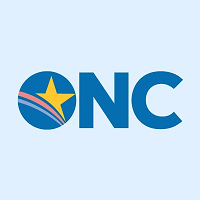 By Amanda Woodhead, ONC
By Amanda Woodhead, ONC
Twitter: @ONC_HealthIT
ONC recently held a health care provider-focused workshop and guided discussion on opportunities and challenges related to sharing electronic health information (EHI). More than 200 people involved with utilizing health information technology (health IT) to share EHI participated in the half-day workshop. They also provided perspectives on October 6, 2022, when the definition of “information blocking” no longer limits its focus to the subset of EHI represented by data elements in the United States Core Data for Interoperability version 1 (USCDI v1).
Top Three Themes from the Workshop
Sharing EHI requires thoughtful implementation of health IT-supported workflows and processes.
During the workshop, participants explored technical approaches and lessons learned related to sharing EHI when and where it is needed, consistent with the information blocking regulations and other applicable laws. The workshop also examined real-world industry examples of how organizations have implemented EHI sharing workflows for any authorized user, including patients.
Here are three themes that emerged from the participants:
- Training: Many organizations reported that training across and within departments, as well as with patients, was a priority. Frequent and regular provider-to-patient education assists patients in understanding and choosing their options to get and share their EHI. Further, participants said that greater education on EHI sharing options led to more engagement from informed patients.
- Technical capacity: Participants noted the importance of having the technical capability and workflows to respond to differing patient preferences and differing needs around the sharing of EHI. Implementing patient preferences that specify what they want to get or share, with whom, and in what timeframe can be dependent on electronic workflows, and sometimes that means creating new ones.
- Data: Moving information into and out of health IT systems and applications that are not ONC-certified presents a key challenge. Certain types of EHI (e.g., images) can be more challenging to share. There were also concerns around the privacy and security of third-party applications selected by patients rather than the provider, and whether patients fully understand how these direct-to-consumer apps will subsequently use their data.
While much more was discussed during the workshop, these themes appeared across the focused topic areas discussed. If you were unable to join the workshop but would like additional information on EHI sharing, ONC is hosting office hours with ONC subject matter experts on October 6 and October 27.
This article was originally published on the Health IT Buzz and is syndicated here with permission.
